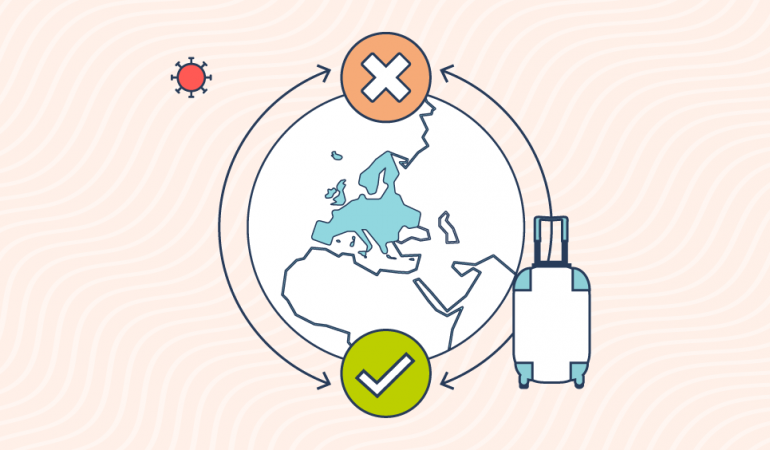News
Commission proposes to reinforce coordination of safe travel in the EU

Today, the European Commission has proposed to update the rules on coordination of safe and free movement in the EU, which were put in place in response to the COVID-19 pandemic.
Since the summer, vaccine uptake has increased significantly and the EU Digital COVID Certificate has been rolled out successfully, with more than 650 million certificates issued to date. At the same time, the epidemiological situation in the EU continues to develop with some Member States taking additional public health measures, including administering booster vaccines. Taking into account all those factors, the Commission is proposing a stronger focus on a ‘person-based approach to travel measures and a standard acceptance period for vaccination certificates of 9 months since the primary vaccination series. The 9 month period takes into account the guidance of the European Centre for Disease Prevention and Control (ECDC) on the administration of booster doses as of 6 months and provides for an additional period of 3 months to ensure that national vaccination campaigns can adjust and citizens can have access to boosters. The Commission is also proposing updates to the EU traffic light map; as well as a simplified ‘emergency brake' procedure.
Key updates to the common approach to travel measures within the EU proposed by the Commission are:
- Focus on a ‘person-based approach': someone with a valid EU Digital COVID Certificate should in principle not be subject to additional restrictions, such as tests or quarantine, regardless of their place of departure in the EU. Persons without an EU Digital COVID Certificate could be required to undergo a test carried out prior to or after arrival.
- Standard validity of vaccination certificates: the Commission proposes a standard acceptance period of 9-month for vaccination certificates issued following the completion of the primary vaccination series. This takes into account the guidance of the European Centre for Disease Prevention and Control (ECDC) on the administration of booster doses as of 6 months and provides for an additional period of 3 months to ensure that national vaccination campaigns can adjust and citizens can have access to boosters. This means that, in the context of travel, Member States should not refuse a vaccination certificate that has been issued less than 9 months since the administration of the last dose of the primary vaccination. Member States should immediately take all necessary steps to ensure access to vaccination for those population groups whose previously issued vaccination certificates approach the 9-month limit.
- Booster shots: As of yet, there are no studies expressly addressing the effectiveness of boosters on the transmission of COVID-19 and therefore it is not possible to determine an acceptance period for boosters. However, given the emerging data, it can be expected that protection from booster vaccinations may last longer than that resulting from the primary vaccination series. The Commission will closely monitor newly emerging scientific evidence on this issue. On the basis of such evidence, the Commission may, if needed, propose an appropriate acceptance period also for vaccination certificates issued following a booster.
- The EU traffic light map is adapted: combining new cases with a region's vaccine uptake. The map would be mainly for information purposes, but would also serve to coordinate measures for areas with particularly low (‘green') or particularly high level (‘dark red') of circulation of the virus. For these areas, specific rules would apply by derogation from the ‘persons-based approach'. For travellers from ‘green' areas, no restrictions should be applied. Travel to and from ‘dark red' areas should be discouraged, given the high number of new infections there, and persons who are neither vaccinated nor have recovered from the virus should be required to undergo a pre-departure test and quarantine after arrival.
- Exemptions from certain travel measures: should apply for cross-border commuters, children under 12 and essential travellers. The list of essential travellers should be reduced as many travellers included in the current list have had the opportunity to be vaccinated in the meantime.
- Simplified ‘emergency brake' procedure: the emergency procedure intended to delay the spread of possible new COVID-19 variants or address particularly serious situations should be simplified and more operational. It would include a Member State notification to the Commission and the Council and a roundtable at the Council's Integrated Political Crisis Response (IPCR).
To allow for sufficient time for the coordinated approach to be implemented, the Commission proposes that these updates apply as of 10 January 2022.
Image © Council of the European Union
Last news
-

-
 18 November 2025
18 November 2025Council and Parliament reach agreement on the EU budget for 2026
-
 14 November 2025
14 November 2025Commission announces over €5 billion in funding for Erasmus+ 2026






